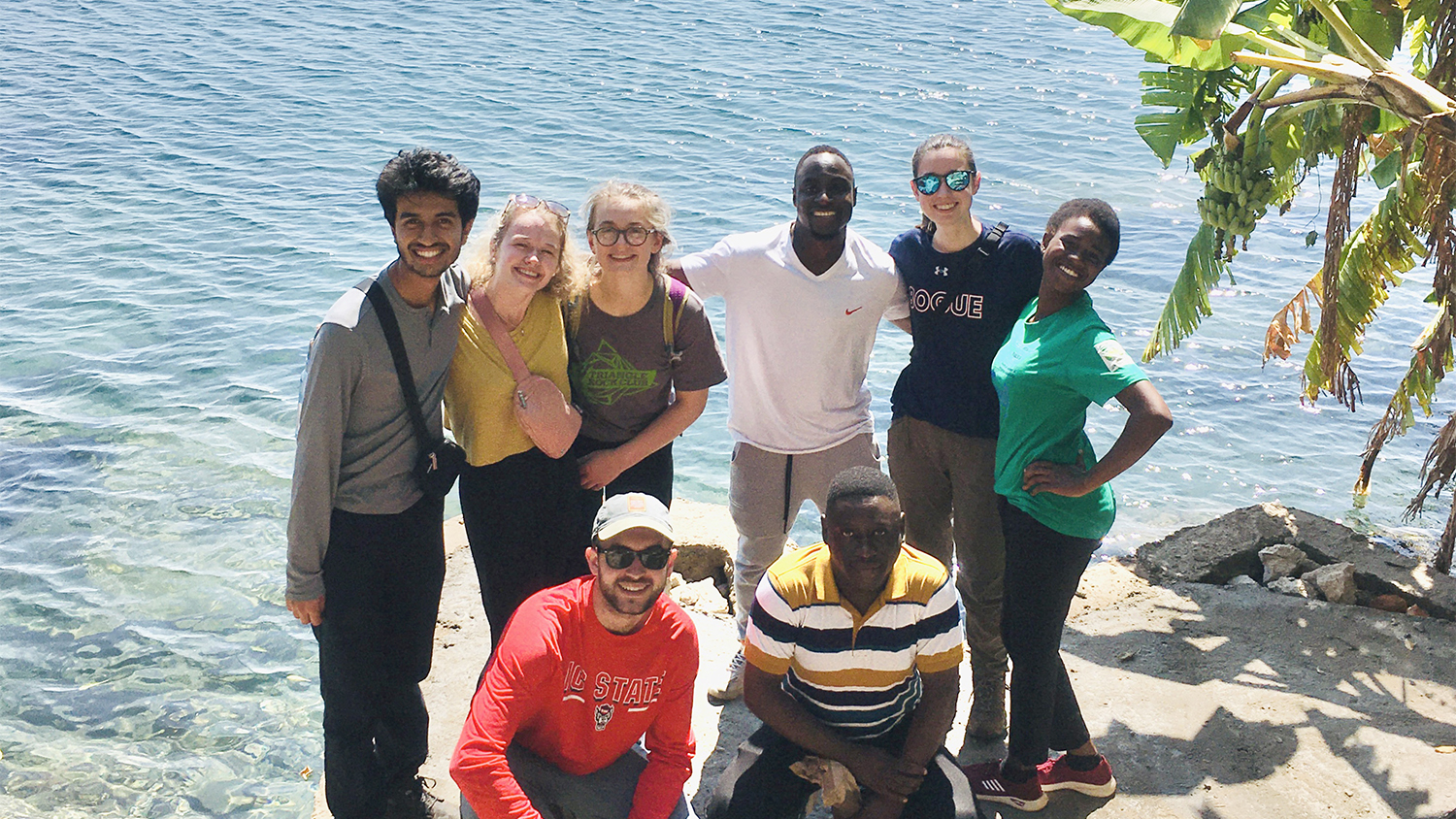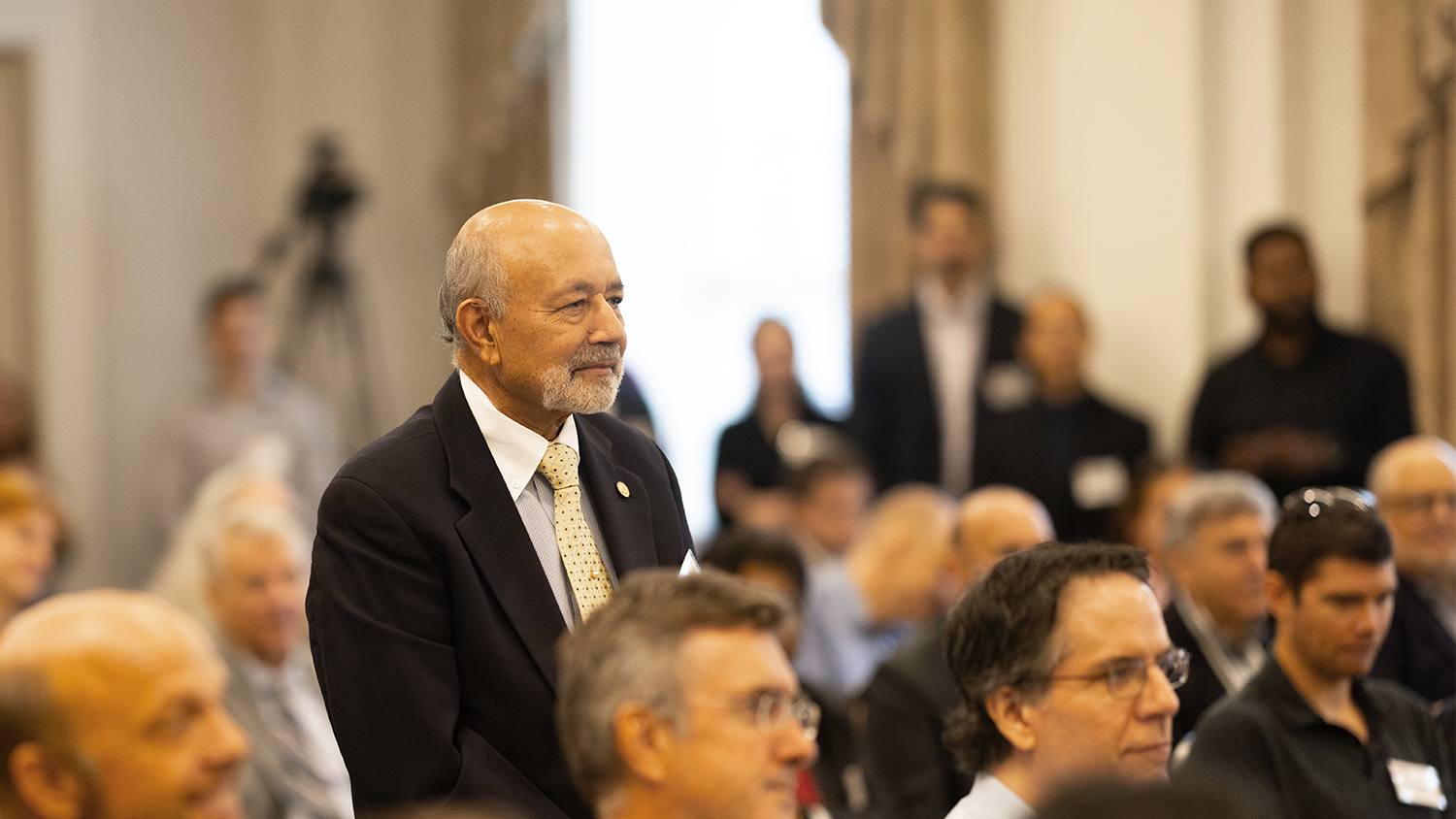Ben Clark didn’t anticipate spending eight weeks of the summer in Malawi, but when he found a grant-sponsored trip involving environmental and health-based research, he applied immediately.
“My actual research advisor was like, ‘I don’t know if that’s like the best idea,’” said Clark, who is a Ph.D. student studying civil engineering. “Especially if I want to graduate on time. But I don’t really care about the timeline. I wanted to spend two months in Malawi.”
The trip, which was funded by the National Science Foundation, allowed students to get hands-on research experience on water, sanitation and hygiene needs of underserved populations.
NC State University students worked on one of four projects: to understand linkages between household water, food and energy insecurity and how these affect contamination with E. coli and antibiotic-resistant E. coli in drinking water and food; to do a survey on household access to and sources of potable water; to design soak pits for greywater in a refugee camp; and to do wastewater testing and research on pathogen transmission.
Clark and six other NC State students partnered with academics and fellow students from Malawi, including at Mzuzu University and Malawi University of Science and Technology, as well as students from the University of Louisville. Students ranged from undergraduates to Ph.D. students.
“When you do these studies, a lot of times you don’t want Westerners or people who don’t belong in the area to go out into the field,” he said. “That could definitely bias your survey, so I would sit in a van and wait for one of my Malawian student partners to call me and say that they obtained consent from the community members. Then myself and a partner would go and we would take samples.”
This will not be the last time NC State students have the opportunity to do similar research in Malawi. Ayse Ercumen, an associate professor and epidemiologist in NC State’s Department of Forestry and Environmental Resources and the faculty lead on the 2024 trip, said that the team plans to lead two more cohorts on eight-week-long summer trips in 2025 and 2026.
Along with Ercumen, the trip was led by Francis de los Reyes, Glenn E. and Phyllis J. Futrell Distinguished Professor in the Department of Civil, Construction, and Environmental Engineering (CCEE); Angela Harris, associate professor in CCEE; Raymond Guiteras, associate professor in the Department of Agricultural and Resource Economics; and Cassandra Workman, an associate professor of medical anthropology at the University of North Carolina at Greensboro.
Other faculty partners included Rochelle Holm, associate professor at the University of Louisville; Brighton Chunga, head of the Department of Water and Sanitation at Mzuzu University; and Petros Chigwechokha, head of the Biological Sciences Department at Malawi University of Science and Technology.
“In order to be truly innovative, our job was to think about what the gaps are that remain in the existing literature,” Ecrumen said. “Some of the messaging around water treatment and hand washing has been around for a long time, but there’s other types of exposures that sort of fall through the cracks when you’re delivering programs.”
“Our partners were really instrumental in making sure that we understood the local context and also in introducing the U.S. students to life in Malawi.” – Ayse Ercumen
Ercumen credits NC State’s in-country partners for such a positive experience.
“You can well imagine that without an established partnership, you can’t very well parachute students into another part of the world and then expect them to thrive,” she said. “So it was really important to just work through channels where we had formed trusting work relationships with researchers in Malawi, and those were built on a long-standing collaboration.”
While there was a lab component of the research, much of it involved population-based research and going into communities.
“In each project team, U.S. students partnered with Malawian students, who were wonderful,” Ercumen said. “So our partners were really instrumental in making sure that we understood the local context and also in introducing the U.S. students to life in Malawi. We relied on them really heavily.”
Back on campus, students incorporated their new experiences into their work and studies.
“I had to develop the math for the refugee camp on ArcGIS,” said Gabby Vertreese, referring to the geographic information systems software. “Before I went, I didn’t know any ArcGIS, so I taught myself. For what I want to do, for environmental and ecological engineering, they use a lot of GIS modeling and mapping. Now I know how to put the points in ArcGIS, so I definitely will be using that a lot.” Vertreese is a senior biological and agricultural engineering student.
Chinmay Talikoti, a junior in computer science and economics, plans to keep working on analyzing the data and possibly develop something more. Talikoti worked on the drinkable water survey, in which he and the others on his team cataloged what sort of treated water locals were drinking and how they got access.
“It was a really valuable thing for me to be able to see,” he said. “Now, I feel like I understand a little bit more about what these models represent and why they’re useful on the ground to actually understand how to solve a problem.”
- Categories:



